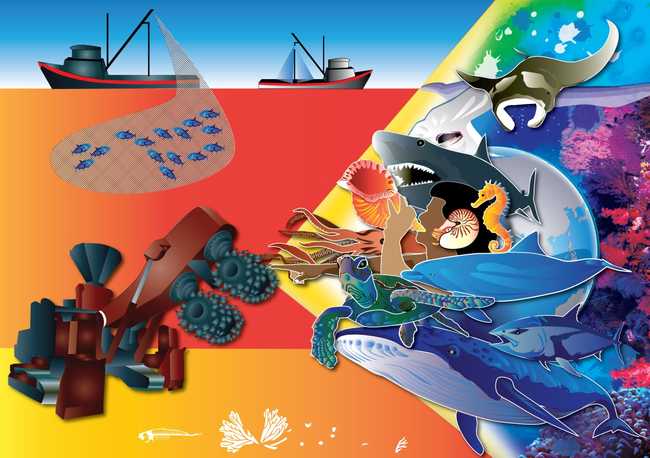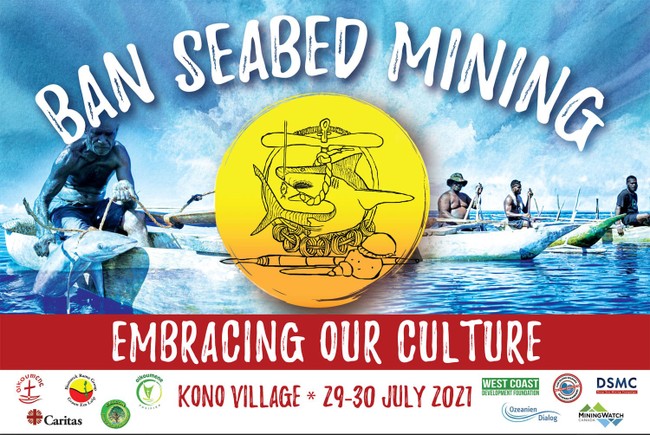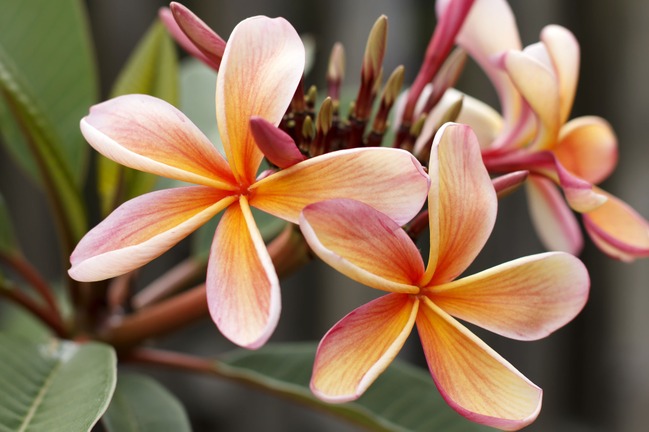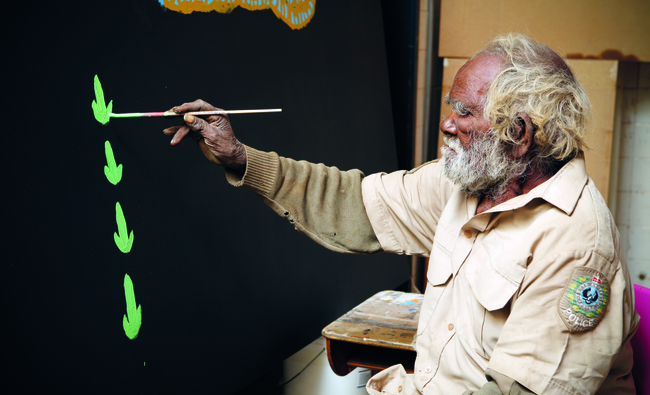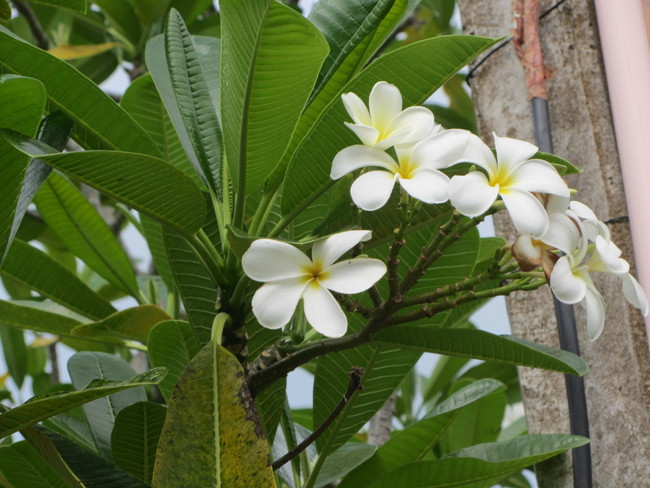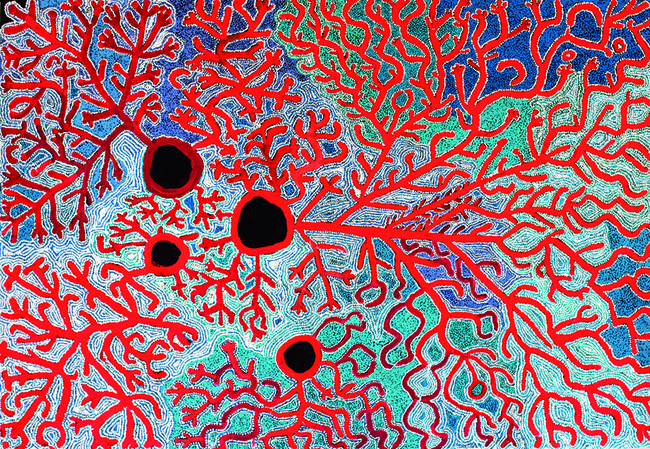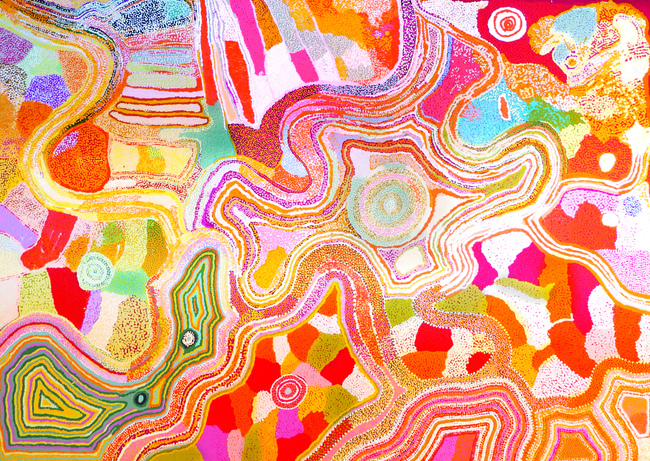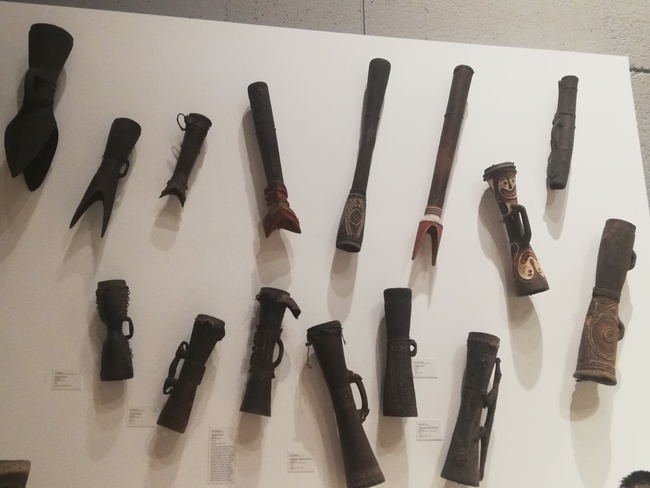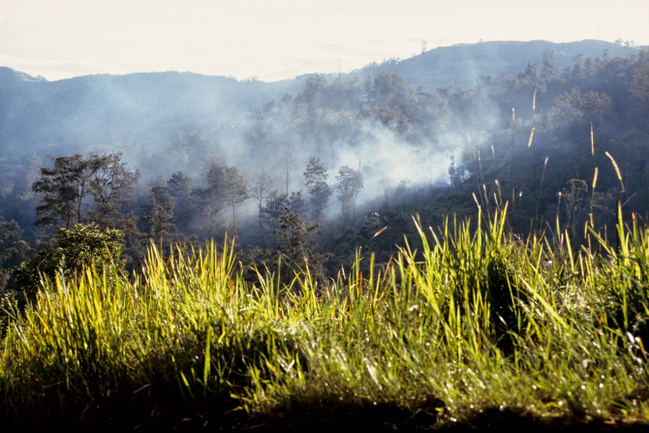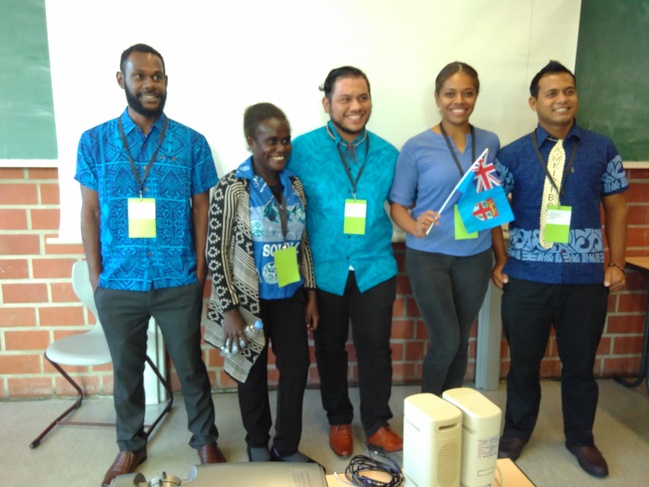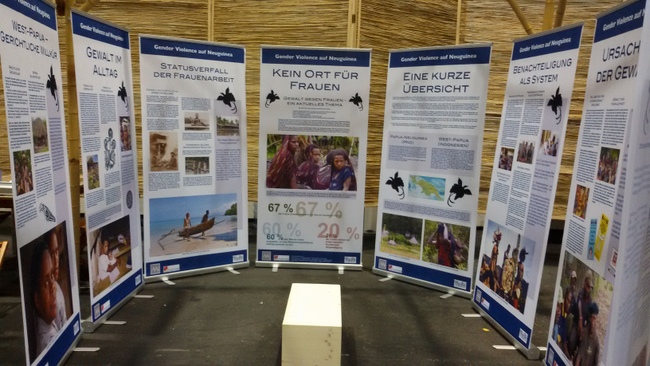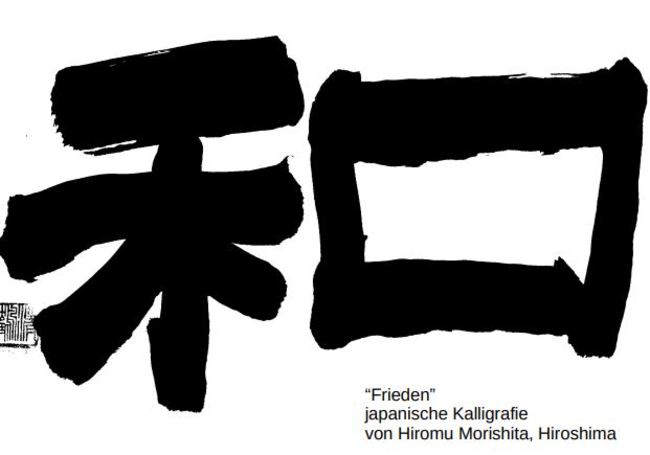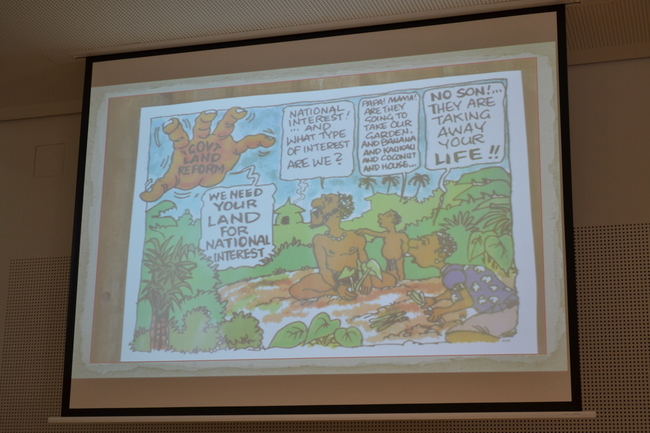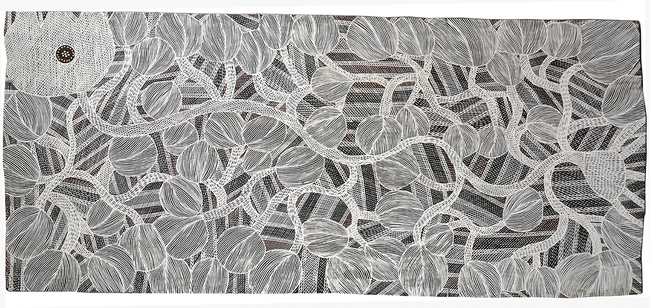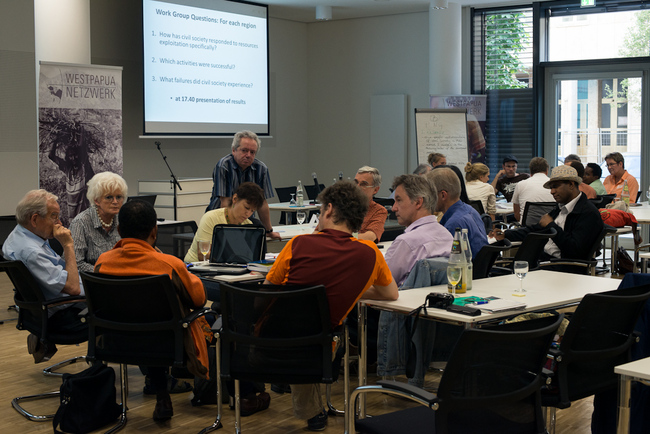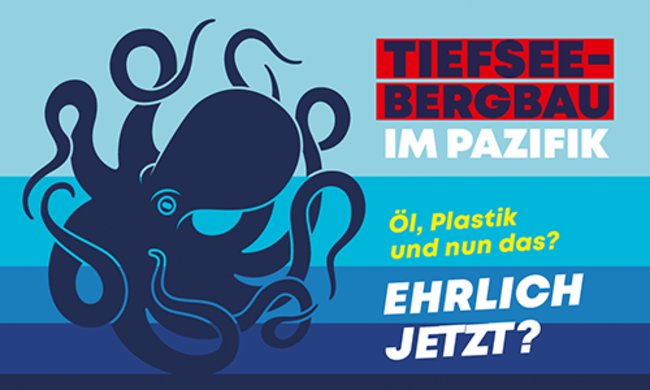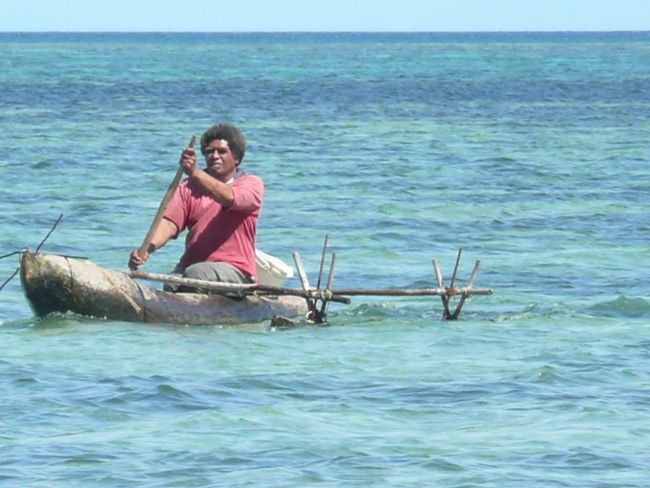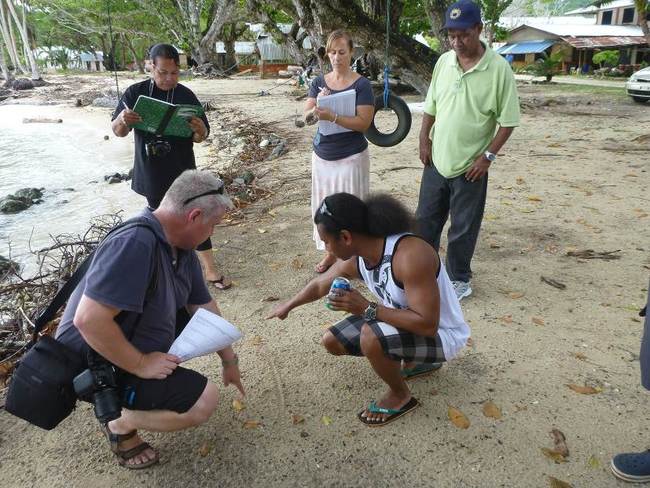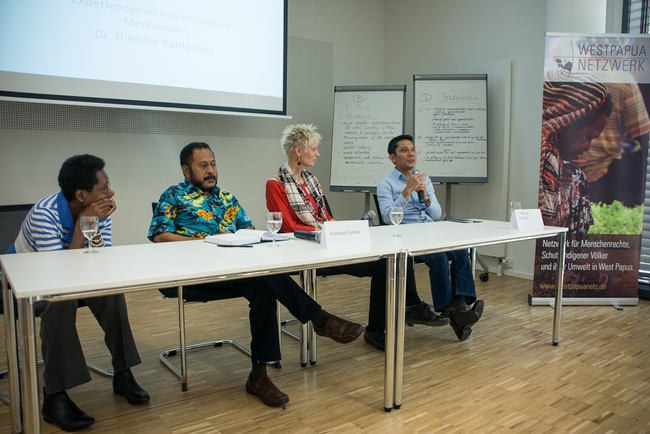Trumps Rache trifft Fidschi
07.04.2025: Eine Analyse zu den amerikanischen Zöllen auf Produkte aus Fidschi von Pazifik-Netzwerk-Vorstandsvorsitzendem Eckart Garbe
English below
US-Präsident Donald Trump belegt Fidschi mit einem 32-prozentigen Zoll auf alle seine Exporte in die USA. Dies gehört zu den mit großem Getöse angekündigten angeblich reziproken Zöllen für eine lange Liste von Staaten und Gebieten, die laut Trumps Team teils sofort und teils in wenigen Tagen in Kraft treten. Bei Fidschi werden viele vermuten, dass es um Zuckerexporte in die USA geht. Doch weit gefehlt. Fidschis Zuckeranbau befindet sich seit langem im Krisenmodus und das Land exportiert bislang bloß vergleichsweise wenig davon Richtung USA. Stattdessen geht es um die Kultmarke ‚Fiji Water‘, die das größte Opfer von Trumps Zoll-Wahn zu werden scheint.
Nach aktuellen Zahlen, die aus 2023 stammen, haben die Wasserexporte Fidschis in die Vereinigten Staaten einen Umfang von mehr als 240 Millionen US$ erreicht. Dies ist der größte Teil der gesamten Exporte Fidschis in die USA und ein Großteil des von Fidschi weltweit exportierten Wassers. Fidschi liefert sein edles Produkt auch nach Kanada, Mexiko, in die Arabischen Emirate und nach Australien, doch in die USA wird das Hundertfache dessen geliefert. Was in Fidschi selbst überall aus den Leitungen fließt, ist in den Vereinigten Staaten zu einem gut vermarkteten, teuren, in eckigen Plastikflaschen abgefüllten stillen, also kohlensäurelosen Modegetränk avanciert.
Nun gut, wenn manche meinen, sich das gönnen zu müssen. Bei uns gibt es ‚Fiji Water‘ bloß in wenigen Restaurants und Luxus-Shops. Andernorts ist es ein Hype und doch bloß ein Bluff. In Fidschi selbst - wo es in abgelegenen Dörfern bis heute keine Wasserleitungen gibt - werden aus der Quelle auf Vitu Levu erhebliche Wassermengen entnommen, gut für die Umwelt kann das nicht sein. Und überall entlang der Lieferkette wird gigantisch viel Plastikmüll hinterlassen. Die Kultmarke erzeugt einen riesigen Fußabdruck.
Die Firma, die ‚Fiji Water‘ so erfolgreich in den USA verkauft, genießt in Fidschi seit langem den Vorteil von niedrigen Steuern. Nachdem es anfangs darum viel Streit gab, hat Fidschis Regierung erst jüngst diese günstigen Steuern nochmals um sieben weitere Jahre verlängert, obwohl es Umweltbedenken gibt. Das Unternehmen befindet sich seit nun etwa 15 Jahren im Aufschwung und es gehört zwei US-Bürgern namens Stewart und Lynda Resnick. ‚Fiji Water‘ ist also ein US-Unternehmen.
USA schalten Rückwärtsgang ein
Trump behauptet, dass Fidschi Importe aus den USA (dabei geht es meist um Medizingerät, Maschinen- sowie Elektroteile) seinerseits mit 63 Prozent Zoll und Abgaben belegt hat, also überdurchschnittlich besteuert und deshalb nun mit einem hohen Gegenzoll für seine Exporte in die USA reagiert wird. Das hat in Fidschi Irritation und Staunen ausgelöst, denn es ist Quatsch. Biman Prasad, der renommierte Finanzminister Fidschis, sagt, dass das Pazifikland auf alle US-Importe Einfuhrzölle von durchschnittlich weniger als zwei Prozent erhebt (genau gesagt schwanken diese zwischen null und fünf Prozent). Den Handel beschränken in beide Richtungen nicht übertriebene Abgaben und Zölle, sondern eher zu hohe Frachtkosten. Aus Sicht Fidschis ist die US-Position also völlig unverhältnismäßig.
Doch nicht allein das. Trump und sein Team erzählen einfach Unsinn. Sie haben Australien, Neuseeland und die meisten südpazifischen Inselstaaten mit einem Basiszoll von 10 Prozent belegt und damit halbwegs verschont. Doch Vanuatu wurde mit 22 Prozent, Nauru mit 30 Prozent und die Norfolk-Inseln, die zu Australien gehören, jedenfalls bislang, wurden mit 29 Prozent Zoll belegt. Eigentlich ist das egal für sie. Nauru und die Norfolks exportieren nichts in die USA. Bloß Vanuatu ist eine Ausnahme, denn Vanuatu liefert Kava in die Vereinigten Staaten, beliebt bei der Diaspora, den Pacific Insulanern dort.
Realsatire inklusive
Vermutlich kamen die Norfolk-Inseln auf Trumps Liste um Australien zu ärgern und das winzige Tokelau mit eigenem Basiszoll auszustatten könnte als Fingerzeig an Neuseeland gedacht sein, womit es eng assoziiert ist. Im Indischen Ozean schafften es ja selbst mehrere unbewohnte Inseln (australische Außengebiete) auf Trumps seltsame Liste und um seine Realsatire noch zu toppen, auch die Chagos-Inseln, die den US-Luftwaffenstützpunkt Diego Garcia beherbergen. Es mögen alles auch bloß fehlende Basiskenntnisse sein. De facto ist das egal. Trump geht es eben um die ganz große Show. Und wie Fidschi zeigt, wohl auch um bittere Rache.
Stewart und Lynda Resnick, denen ‚Fiji Water‘ gehört, haben ihre Wurzeln in Kalifornien und haben dort auch seit Jahren die US-Demokraten finanziell unterstützt. Sie sponsern natürlich auch den Rugby-Sport auf den Fidschi-Inseln. Doch in Kalifornien gehören sie zu den ganz großen Geldgebern des Anti-Trump Lagers, zu den Sponsoren der Demokraten dort. Die Resnick’s sind inzwischen hochbetagte, ultrareiche Geschäftsleute und Philanthropen. Sie leben in Beverly Hills und haben sich in den letzten Jahrzehnten ein Wasserimperium aufgebaut. Das alles dürfte dem Irren im Weißen Haus nicht gefallen und seine Rache trifft nun die Resnick's und damit auch Fidschi.
32 Prozent Importzoll für Einfuhren aus Fidschi haben nicht so viel mit dem Pazifikland selbst zu tun und wenig mit dem inzwischen minimalen Handelsdefizit; eher handelt es sich um einen Strafzoll gegen steinreiche kalifornische Sponsoren, die Trump nicht unterstützen, sondern die andere Seite. Dies ist jedenfalls bei Fidschi die private Vendetta des Herrn im Weißen Haus. Mit potentiell großem Schaden für Fidschi. Dessen Regierung hat erstmal die Parole ausgegeben, bloß keine Panik - und mal sehen.
Vielleicht ist genügend zahlungskräftigen Amerikanern das leitungswassergleiche Kultgetränk von den Fidschi-Inseln ja so wichtig, dass sie Trumps Zollaufschlag blindlinks mitzahlen und alles für ‚Fiji Water‘ noch glimpflich ausgeht. Trump geht es allerdings wohl um das Gegenteil, darum, seinen Widersachern in den Staaten kräftig eins auszuwischen. Das jetzt mächtige Großmaul kämpft mit den reichen Gutmenschen um die Hegemonie. Fidschi und alle anderen schauen zu und dürfen den Schaden ausbaden.
Text: Eckart Garbe, Hamburg, Vorstandsvorsitzender Pazifik-Netzwerk e.V.
Trump's revenge hits Fiji
US President Donald Trump is imposing a 32 per cent tariff on all Fiji's exports to the USA. This is part of the alleged reciprocal tariffs announced with great fanfare for a long list of countries and territories, some of which will come into force immediately and others in a few days, according to Trump's team. In the case of Fiji, many will assume that it is about sugar exports to the USA. But far from it. Fiji's sugar cultivation has been in crisis mode for a long time and the country has so far exported comparatively little of it to the USA. Instead, it's all about the cult brand “Fiji Water”, which seems to be the biggest victim of Trump's tariff mania.
According to current figures from 2023, Fiji's water exports to the United States have reached more than US$ 240 million. This is the largest share of Fiji's total exports to the US and a large proportion of Fiji's global water exports. Fiji also supplies its fine product to Canada, Mexico, the United Arab Emirates and Australia, but hundreds of times that amount is supplied to the USA. What flows out of the taps everywhere in Fiji itself has become a well-marketed, expensive, non-carbonated fashionable drink in the United States, bottled in square plastic bottles.
Well, if some people think they have to treat themselves to it. Here, “Fiji Water” is only available in a few restaurants and luxury shops. Elsewhere, it's hype and yet just a bluff. In Fiji itself - where there are still no water pipes in remote villages - considerable amounts of water are taken from the spring on Vitu Levu, which can't be good for the environment. And a huge amount of plastic waste is left behind all along the supply chain. The cult brand creates a huge footprint.
The company that sells “Fiji Water” so successfully in the USA has long enjoyed the advantage of low taxes in Fiji. After much controversy in the beginning, Fiji's government recently extended these favourable taxes for another seven years, despite environmental concerns. The company has been on the upswing for around 15 years now and is owned by two US citizens named Stewart and Lynda Resnick. 'Fiji Water' is therefore a US company.
USA switches into reverse gear
Trump claims that Fiji has imposed a 63 per cent duty and tax on imports from the USA (mostly medical equipment, machinery and electrical parts), i.e. above-average taxation, and is therefore now responding with a high counter-duty on its exports to the USA. This has caused irritation and astonishment in Fiji, because it is nonsense. Biman Prasad, Fiji's renowned Finance Minister, says that the Pacific country levies import duties of less than two per cent on average on all US imports (to be precise, these fluctuate between zero and five per cent). Trade in both directions is not restricted by excessive duties and tariffs, but rather by high freight costs. From Fiji's point of view, the US position is therefore completely disproportionate.
But that's not all. Trump and his team are simply talking nonsense. They have imposed a basic tariff of 10 per cent on Australia, New Zealand and most of the South Pacific island states and thus spared them halfway. But Vanuatu has been hit with a 22 per cent tariff, Nauru with a 30 per cent tariff and the Norfolk Islands, which are part of Australia, at least so far, have been hit with a 29 per cent tariff. It doesn't really matter to them. Nauru and the Norfolks do not export anything to the USA. Only Vanuatu is an exception, because Vanuatu supplies kava to the United States, which is popular with the diaspora, the Pacific Islanders there.
The Norfolk Islands were presumably added to Trump's list to annoy Australia and giving tiny Tokelau its own base tariff could be intended as a nod to New Zealand, with which it is closely associated. In the Indian Ocean, even several uninhabited islands (Australian outlying territories) made it onto Trump's strange list and, to top off his satire, the Chagos Islands, which are home to the US airbase Diego Garcia. It may all just be a lack of basic knowledge. De facto, it doesn't matter. Trump is all about the big show. And as Fiji shows, probably also about bitter revenge.
Stewart and Lynda Resnick, who own “Fiji Water”, have their roots in California and have financially supported the US Democrats there for years. Of course, they also sponsor rugby in Fiji. But in California, they are one of the biggest donors to the anti-Trump camp and sponsors of the Democrats there. The Resnick's are now very old, ultra-rich businessmen and philanthropists. They live in Beverly Hills and have built up a water empire over the last few decades. None of this is likely to please the madman in the White House and his revenge is now hitting the Resnick's and thus also Fiji.
The 32 per cent import duty on imports from Fiji has little to do with the Pacific country itself and little to do with the now minimal trade deficit; rather, it is a punitive tariff against filthy rich Californian sponsors who do not support Trump, but the other side. In any case, this is the private vendetta of the gentleman in the White House in Fiji. With potentially great damage for Fiji. For the time being, his government has issued the slogan, don't panic - and let's see.
Perhaps the cult drink from the Fiji Islands, which is similar to tap water, is so important to enough solvent Americans that they will blindly pay Trump's tariff surcharge and everything will turn out okay for “Fiji Water”. However, Trump's aim is probably the opposite, to get one over on his opponents in the States. The now powerful loudmouth is fighting for hegemony with the rich good guys. Fiji and everyone else is watching and is left to take the damage.
